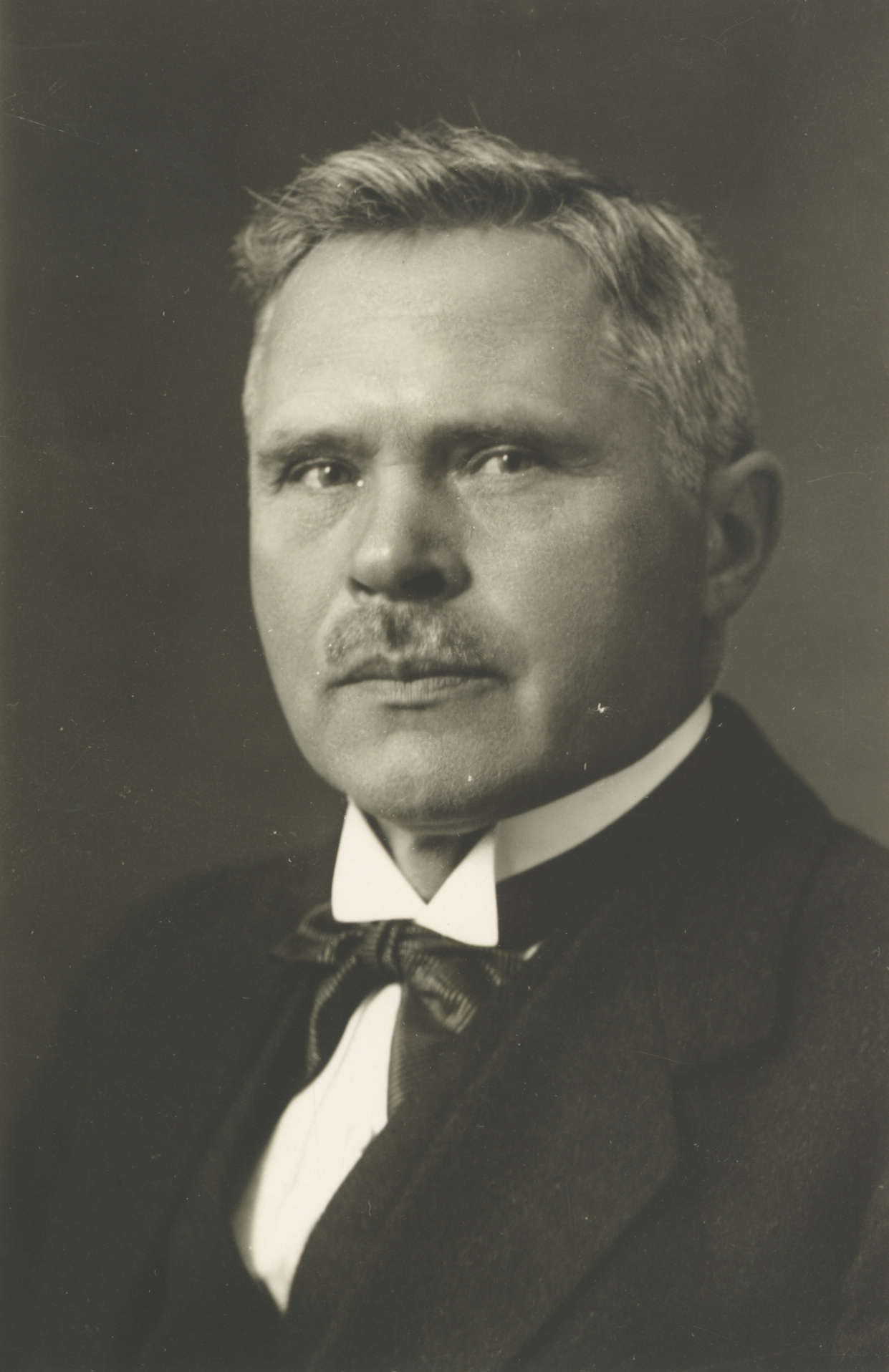
Georg Eduard Luiga
Georg Eduard Luiga (27./15. II 1866 – 20. III 1936) was a schoolteacher and journalist who also wrote poems and prose.
Luiga was born in Valgjärve parish in Võru county, the son of a schoolmaster. Even as a boy of ten or eleven he started writing poems, because there was not much reading matter. Luiga sent his first poems to newspapers as a teenager. After leaving the parish school he was a schoolteacher at Äksi and a collaborator on J.V. Jannsen’s newspaper Eesti Postimees. He also collaborated on K.A. Hermann’s paper Olevik, sometimes under a female pseudonym. Later Luiga went to work in the editorial office of Olevik for a short time.
In 1891 Luiga emigrated to Russia, first to the settlement of Simbirsk as a parish schoolteacher, then four years later to the same post in Tobolsk in Western Siberia. After ten years away from his homeland he initially came back to work on the newspaper Ristirahva Pühapäevaleht, then to be chief editor of Päevaleht. From 1908 to 1934, in the position of editor-in-chief, Luiga developed it, together with Hans Rebane, into one of the most widely-read papers in Estonia.
Luiga’s first book was a collection of stories in the national-romantic vein, Muruneid (‘Maid of the Grass’, 1886). Together with other similar early prose works and poetry collections (Laulud – ‘Songs’ -, 1888; Uued laulud – ‘New Songs’ -, 1901), it found readers, but earned reproaches from the critics for its artistic weakness. Of Georg Eduard Luiga’s poems the best known is Lapsepõlvekodu, (‘Childhood Home’), which is known for the words of the first verse: “Sääl, kus rukkiväli lagendikul heljub…” (‘Where the rye-field floats in the clearing…’).
In 1912 Luiga published a collection of 17 stories, Vägivallamaal (‘In the Land of Violence’). The work describes the lives of emigrants from Estonia in Siberia, and is based on real events and persons. The book was warmly received. Words of praise also came from August Kitzberg, who noted, however, that not all the stories were of an even quality. Later critics have taken note of George Eduard Luiga poems, saying that the author had a lively imagination and a facility for finding a suitable forms for the poems.
In 1911 Luiga produced a travelogue, Mere taga võõrsil (‘Abroad Beyond the Sea’) with his impressions of Denmark and Norway. Luiga also wrote several books of popular science, brochures and articles in journals, and translated fiction into Estonian.
L. P. (Translated by C. M.)
Books in Estonian
Poetry
G. E. Luiga laulud. Tartu: K. A. Hermann, 1888, 117 lk.
Uued laulud. Tallinn. J. Ploompuu raamatukauplus, 1901, 136 lk.
Stories
Muruneid: Luule jutt Eestlaste minewikust. Tartu: H. Laakmann, 1886, 34 lk.
Pahane neiu. Tartu: K. A. Hermann, 1887, 90 lk.
Omad witsad. G. E. Luiga uudisjutt Eesti wäljarändajate elust. Tallinn: J. Ploompuu, 1900, 31 lk.
Wägiwallamaal. Jutustused. Tallinn: J. Ploompuu, 1912, 242 lk.
Travelogues
Mere taga wõõrsil. Tallinn: Tallinna Eesti Kirjastus-ühisus, 1911, 63 lk.
Miscellaneous
Õigus ja kohus: Tarwiline seaduse asjade käsiraamat igaühele igapäewases elus ja kohtukäimises. 1. jagu: Kohtupidamise kord kõigis kohtutes ja palwekirjade proowid. Tartu: A. Grenzstein, 1891, 75 lk.
Kepp ja kalju: Seitsmekordne palwe-raamat ja kuus lisa. Pärnu: J. Dreimanni raamatukauplus, 1896, 143 lk.
Maakera elulugu. Tallinn: Koit, 1907, 110 lk.
Meie nägemata sõbrad ja waenlased: Loodusteadusline kirjeldus bakteriatest: 28 pildiga. Tallinn: G. Pihlakas, 1908, 66 lk.
Taimede elu. Tallinn: Teadus, 1913. 96 lk.
Eesti-Saksa wahekord Baltimaal. Tallinn: Tallinna Eesti Kirjastus-Ühisus, 1919, 47 lk.



